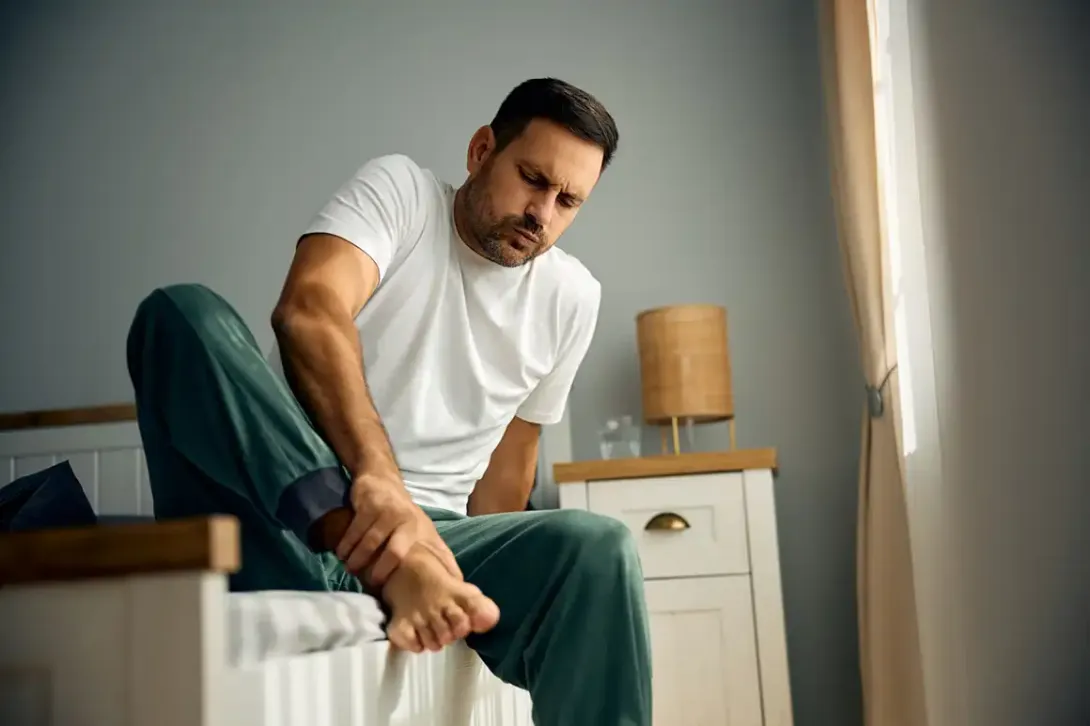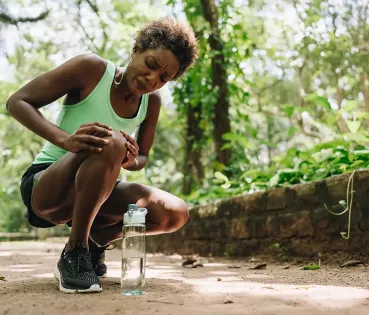
Why do we have muscle cramps? This is what to do when you have one.
If cramps become frequent, intense or are linked to other symptoms such as weakness or swelling, it is advisable to consult a doctor.
Muscle cramps are one of those annoying issues that, although brief, can be extremely painful. They appear suddenly, often in the middle of the night or during or after physical exercise, and cause the muscle to contract, becoming stiff and out of control. That feeling of an intense "knot" that paralyzes for a few seconds or minutes is a common experience but is often misunderstood.
Although we usually associate cramping with sports or dehydration, in fact muscle cramps are a result of a number of factors ranging from mineral imbalances to nervous fatigue or circulatory problems. Understanding why they happen and how to act when they occur is key to telling apart a one-off episode from a recurring problem.
What are muscle cramps and why do they occur?
Muscle cramps are involuntary and painful contractions of one or more muscles that become incapable of relaxing on command. According to the European Academy of Neurology (EAN), they tend to affect leg muscles – particularly calves and feet – and can be linked to both physical activity and rest. Although in most cases they are benign, their exact cause is not yet fully understood.
There are, however, several factors that make them more likely. One of the most common is an electrolyte imbalance, i.e. the lack of minerals such as sodium, potassium, magnesium or calcium, essential for proper muscle contraction and relaxation. The European Food Safety Authority (EFSA) points out that these micronutrients are essential for nerve signal transmission and normal muscle function. When those minerals decrease due to excessive sweating, restrictive diets, or dehydration, the muscle becomes more prone to involuntary contraction.
Other factors are poor blood circulation, a sedentary lifestyle, prolonged immobility, pregnancy, certain diuretic medications and even neuromuscular fatigue due to intense exertion may also play a role. In older people, nighttime cramps are particularly common, as the nerves that control muscle movement can become less efficient with age.
What to do when a cramp appears
Although a cramp is usually short-lived, the pain can be severe and cause the muscle to ache for hours. A correct course of action is key to relieving this problem quickly.
- Stop what you are doing and stretch the affected muscle: if the cramp appears during exercise, stop immediately. Gently stretching the muscles that extend in the opposite direction to the pain can help relax taught muscle fibres. For example, if the cramp is in the calf, it is recommended to extend the leg and gently pull the toes upwards.
- Apply heat or cold: Heat (a warm shower or hot towel) improves circulation and relaxes the area. On the other hand, cold can help reduce the ensuing inflammation.
- Massage carefully: A firm but gentle massage helps restore circulation and relieve muscle tension.
- Hydrate and replenish electrolytes: Drinking water and, if you've sweated a lot, drinks with mineral salts or foods rich in potassium (such as bananas or avocados) can help prevent the cramp from recurring.
If cramps are frequent, intense or linked to other symptoms such as weakness or swelling, it is advisable to consult a doctor, as they might be a sign of underlying metabolic or neurological issues.
How to prevent muscle cramps
Prevention involves preserving the balance between hydration, nutrition and physical activity. Specialists recommend drinking enough water throughout the day, especially in hot weather or during exercise. Likewise, intake of foods rich in magnesium, calcium and potassium – such as nuts, legumes, green leafy vegetables and fresh fruits – can significantly reduce their occurrence.
Regular stretching before and after exercise, as well as a proper warm-up routine, helps keep your muscles flexible and ready for action. In people who suffer from night cramps, performing gentle stretches before bed can be very helpful.
Sleeping in a comfortable position, while keeping your feet from pointing downwards, also decreases the likelihood of muscle contractions during the night.
While cramps are usually harmless, they can be a sign that something else needs attention: insufficient hydration, nutritional deficiency, or overexertion. Cramps can be a chance to listen to one's own body.
Acquiring small habits – such as proper hydration, maintaining a balanced diet and respecting muscle rest times – won’t just prevent muscle cramps, but will also improve overall health and physical performance.




